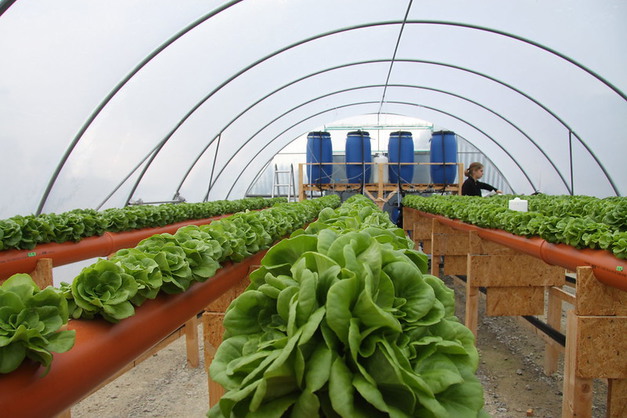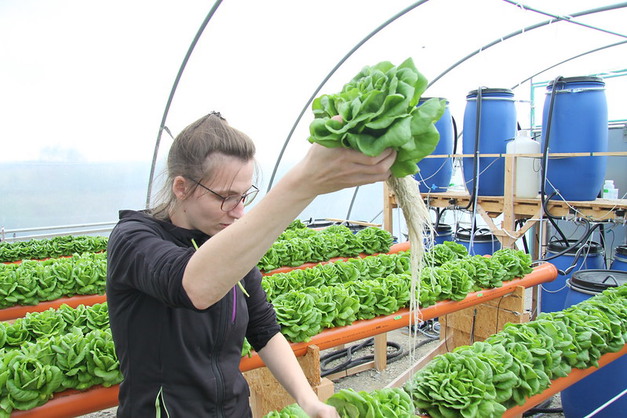From pilot project to large-scale implementation: The process of food production with recycled water, successfully developed in the HypoWave research project, is entering large-scale application for the first time, says the Institute for Social-Ecological Research. In the course of follow-up project HypoWave+, the research network has begun preparations for hydroponic vegetable production with recycled irrigation water on a 1-ha area.
Agricultural production worldwide is increasingly dependent on irrigation, but regional water shortages and the resulting conflicts over water use are on the rise. High-yield harvests cannot be taken for granted in Germany either, due to prolonged heat and dry soils, and new water-saving cultivation methods are being sought. Through the HypoWave+ research project, led by the Technical University of Braunschweig, the German Federal Ministry of Education and Research is therefore funding the implementation of an alternative form of agricultural cultivation in combination with water reuse on an industrial scale.
 After about 20 days of cultivation and 20 days in the greenhouse, the project team was able to harvest hydroponically grown lettuce for the first time. Water and nutrients could be reused in the process.
After about 20 days of cultivation and 20 days in the greenhouse, the project team was able to harvest hydroponically grown lettuce for the first time. Water and nutrients could be reused in the process.
HypoWave process: Alternative for agriculture
A hydroponic process, in which plants in containers without soil are supplied via a nutrient solution using recycled water, had been successfully tested in a previous project in Hattorf, Lower Saxony. "Now the aim is to take the experience gained with the water-efficient process based on recycled water to large-scale production and provide scientific support," says project manager Thomas Dockhorn of the Technical University of Braunschweig. The new HypoWave process not only offers an alternative to irrigation with drinking water and groundwater, the cultivation method also optimizes nutrient supply since vital nutrients such as nitrogen and phosphorus are supplied to the plants from the treated water.
 After harvesting, laboratory tests will show whether the outwardly well-developed lettuce heads actually deliver what they promise.
After harvesting, laboratory tests will show whether the outwardly well-developed lettuce heads actually deliver what they promise.
Regional food production in times of climate change
Together with farmers from Lower Saxony, the scientists are planning to produce up to 700 tons of tomatoes and peppers under glass on one hectare of cultivation area. The vegetables will be sold in regional grocery stores throughout the year, except for a short winter break.
"In the course of the scientific monitoring of HypoWave+, we are focusing on questions of quality management and the marketability of the process," says project coordinator Martina Winker from ISOE - Institute for Social-Ecological Research in Frankfurt. She says it is important not only to develop a viable solution for this location but also to be able to derive recommendations from it for other locations and farmers. Climate change is visibly advancing. Regional vegetable cultivation that is water-saving and viable year-round in greenhouses could therefore become a real option for farmers.
